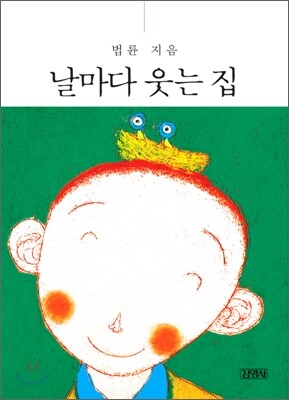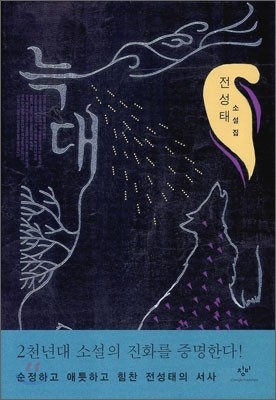1. 도입부
한국의 1980년대는 대학생들이 정치운동의 전위로 활동하며, 이후 다양한 시민운동의 자양으로 성장한 시기이다. 1980년대 진보적 대학생들의 정치 노선을 크게 양분하면, 마르크스주의를 이론적 기반으로 노동운동에 전념하던 PD(민중민주, People Democracy) 계열과 북한의 주체사상에 대한 학습을 통해 통일을 무엇보다 중요하게 생각한 NL(민족해방, National Liberty) 계열로 나눌 수 있다. 전성태는 남한사회의 모순을 분단국가라는 특수성에서 기인한다고 판단하는 작가이다. 그렇기에 전성태 소설에 등장하는 다양한 인물들은 남북한의 전쟁과 분단이라는 비극적 상황에서 고뇌하고, 이러한 상황이 만들어내는 폭압적 현실에서 고통 받는 모습을 동시대적으로 보여주고 있다.
2. 생애
1969년 전라남도 고흥군에서 태어났다. 그가 태어난 곳은 전남 고흥군에서도 20가구 안팎이 사는 시골마을이었다. 이곳에서 성장한 유년기의 기억은 그의 약간은 예스럽고, 약간은 해학적인 문학세계를 형성하는 데 중요한 자양이 되었다. 전성태는 “등단 당시 X세대, 오렌지족이 유행이고 동년배 작가들은 삼풍백화점이나 서태지 같은 문화적 체험을 갖고 글을 쓰는 데 나는 땅굴을 파고 놀고 개구리 잡아 파는 시골 소년의 이야기를 쓰는 것이 콤플렉스였어요. 도회지 감수성으로 무장한 작가들 속에서 흰쌀 속 검은 쌀 한톨이 섞인 듯한 느낌으로 주눅 들어 지냈지요.”라고 밝힌 적이 있다. 이후 전성태는 중앙대학교에서 문예창작학을 공부했으며 1994년 ‘실천문학’ 신인상으로 등단했다.
소설집으로 『두번의 자화상』, 『늑대』, 『국경을 넘는 일』, 『매향(埋香)』, 장편소설로 『여자 이발사』가 있다. 산문집 『성태 망태 부리 붕태』, 인권 르포집 『길에서 만난 세상』을 펴냈다. 어린이를 위한 책 『구텐베르크』, 『장화홍련전』을 썼다. 이후 전성태는 신동엽창작상, 무영문학상, 채만식문학상, 오영수문학상, 현대문학상, 이효석문학상, 한국일보문학상 등을 받았다.
3. 작품 세계
전성태를 평가할 때 흔히 거론하는 것은 그가 한국의 서사적 전통을 잊는 걸쭉한 입담의 이야기꾼이라는 것이다. 그래서 김유정, 채만식, 이문구, 황석영의 계보를 잇는 소설가로 전성태를 꼽기도 한다. 하지만 전성태는 이야기꾼으로서의 재능도 매력적이지만 사회문제를 개인의 차원으로 구체화해 풀어내는 탁월한 능력도 중요하게 거론되어야 할 그의 장점이다. 1994년 실천문학 신인상으로 등단한 전성태는 “대학다닐 땐 집단창작도 했고 평생 운동을 한다는 개념으로 글을 쓰기 시작했어요. 30을 막 넘긴 나이엔 한국작가회의의 사무국장으로 활발한 활동을 했고요. 하지만 사회주의가 실패하고 저 스스로도 ‘우리가 원하는 좋은 사회가 되면 욕망의 문제까지 해결될 것인가?’ 하는 의문을 품으면서 이전에 비해 글이 유연해졌죠.”하고 자신의 소설적 관심을 설명했다. 거칠게 구분하자면, 전성태의 첫 번째, 두 번째 소설집인 『매향』과 『국경을 넘는 일』 까지는 사회운동에 전념하며 그 과정에서 생기는 의문과 질문을 소설로 구성했다면, 세 번째 소설집인 『늑대』 이후부터는 자본주의의 욕망의 문제로 그의 주제의식은 확대되었다고 할 수 있다.
동료 소설가인 백가흠은 전성태 소설가에 대해 이렇게 평했다. “전성태는 과작의 작가이다. 그는 귀하게 소설을 써왔다. 그가 쓴 소설은 귀하게 자리 잡았다. 현실의 상황에서 풀어나가는 그의 재담은 아직도 우리 문학이 가지고 있는 미적인 우월성을 자랑스럽게 만들곤 했다. 특히나 1990년대 이후 소설의 방향이 사회 구성원의 개인사로 향하고 있을 때에도 그의 더듬이는 사회와 현실 안으로 더욱 깊숙이 드리워지고 있었다. 그의 소설이 문학사적으로 중요한 위치를 차지해야만 하는 당연한 이유이다. 리얼리즘이란 시대의 변화에 따라 변형되는 것이 아니기 때문이다. 소설이란 현실을 사는 소시민들의 저잣거리 안에서 펼칠 수밖에 없는 소소한 것임을, 그 현실의 풍경을 통해서 밖에는 말할 수 없는 장르임을 감안하면 그의 소설은 대단한 것이었다.”
4. 주요 작품
작품집
『두번의 자화상』, 창비, 2015.
『늑대』, 창비, 2009.
『국경을 넘는 일』, 창비, 2005.
『매향』, 실천문학사, 1999.
장편
『여자이발사』, 창해, 2005.
5. 수상 내역
2015 제48회 한국일보문학상
2015 제16회 이효석문학상
2011 제57회 현대문학상 소설부문
2011 제19회 오영수문학상
2010 제10회 무영문학상
2010 민족문학연구소 올해의 작가
2009 제6회 채만식문학상
1994 실천문학 신인상
6. 같이 보기
한수영, 「놋주발보다 더 쨍쨍 울리는 추억의 아름다움」, 『실천문학』, 1999년 겨울호.
양진호, 「존재의 숲에 도달한 작가」, 『실천문학』, 2005년 가을호.
오창은, 「아시아의 재발견, 세계체제와 주체의 확장」, 『실천문학』, 2006년 여름호.
정홍수, 「타자는 어디에 있는가」, 『창작과비평』, 2009년 가을호.
백지연, 「타자의 인식과 공공성의 성찰」, 『창작과비평』, 2009년 겨울호.
홍기돈, 「갈피 잃은 상주(喪主)가 라마에 이르는 도정」, 『작가세계』, 2010년 가을호.
백가흠, 「작가 인터뷰 : 바야흐로 전성태, 전성시대!」. 『작가세계』, 2010년 가을호.
Jeon Sungtae
South Korea’s 1980s was a time when university students were on the frontlines of political activism, which later contributed to the growth of various civil movements. To categorize the political lines of liberal university students of the 1980s, There was the PD (People Democracy), which focused on labor movements based on Marxist ideologies, and the NL (National Liberty), which thought the most important thing was reunification based on their studies of North Korea’s Juche ideology. Jeon Sungtae is a writer who thinks that the contradiction of South Korean society arises from the special nature of being a divided nation. Therefore, the various characters in Jeon Sungtae’s fiction agonize over the tragic situation of war and division between North and South Korea, while at the same time also suffering from the oppressive reality that such conditions give rise to.
2. Life
Jeon Sungtae was born in 1969 in Goheung, Jeollanamdo. His birthplace was a countryside town in Goheung, Jeollanamdo consisting of 20 households. Having grown up here, his memories from his youth became a very important foundation in forming his literary mindset that is slightly antiquated and humorous. Jeon Sungtae has said that “at the time of my literary debut, the popular trends were of the X generation, and the Orange Tribe. Writers of my age were writing about cultural experiences like the Sampoong Department Store and Seo Taiji. So I had a complex about the fact that I wrote stories about country boys who dig holes for fun and catch frogs to sell. I felt a bit intimidated among all these writers armed with urban sensibilities, like a lone grain of black rice among all the white rice.” Later, Jeon Sungtae studied creative writing at Chung-Ang University, and began his literary career when he was awarded the Silcheon Munhak New Writer’s Award in 1994.
His published works include the short story collections Dubeonui jahwasang (두번의 자화상 The Second Self-Portrait), Wolves (늑대), Kukkyeongeul neomneun il (국경을 넘는 일 Over The Border), and Maehyang (매향 Burying Incense); the novel Yeoja ibalsa (여자 이발사 The Female Barber); and the book of essays Sungtae, Mangtae, Buri Bungtae (성태 망태 부리 붕태). He has also written a book of reportage Gileseo mannan sesang (길에서 만난 세상 The World I Met On the Road), and children’s books Gutenbereukeu (구텐베르크 Gutenberg) and Janghwahongryeonjeon (장화홍련전 The Story of Janghwa and Hongryeon). Later he won the Sin Dong-yup Prize for Literature, the Mu-young Literature Prize, the Chae Man-sik Literary Award, the Oh Yeongsu Literary Award, the Hyundae Literary Award, the Lee Hyo-seok Literary Award, and the Hankook Ilbo Literary Award.
3. Writing
When evaluating Jeon Sungtae, what is commonly discussed is that he is a rich storyteller who has inherited the narrative tradition of Korea. That is why he is considered as a writer who joins the line of authors Kim Yujung, Chae Man-sik, Lee Mun Ku, and Hwang Sok-yong. However, aside from his appeal as a talented storyteller, another strength of his that is important is his ability to tell a story about social issues at personal levels in detail. Jeon Sungtae, who debuted in 1994 with winning the Silcheon Munhak New Writer’s Award, he has described his interests for fiction as following. “When I was in university, I did creative work in groups, and started writing for the idea that this was something I’d do for the rest of my life. When I had just turned 30, I was also the secretary general of the Association of Writers for National Literature. But when socialism failed, I began to question about ‘whether our problems of desire are going to be resolved if we achieve a society that we want’. And after that my writing became more flexible”. Roughly explained, Jeon Sungtae’s first and second collections, Maehyang (매향 Burying Incense), and Kukkyeongeul neomneun il (국경을 넘는 일 Over The Border) were stories that he formed from doubts and questions regarding the process of practicing social activism. However, after his third collection Wolves (늑대), it can be said that his subject matter was expanded to the problem of desire coming from capitalism.
His colleague Paik Gahuim has said of Jeon Sungtae as the following. “Jeon Sungtae is an unprolific writer. He has written fiction in a very careful way, and the fiction he has written has become established very preciously. His wits carried out in real situations have given pride to the aesthetic superiority of our literature. Especially in the 1990s, when the direction of fiction was heading toward individual stories of members of society, he was diving more deeply into our society and reality. This is why it is natural that his works occupy an important role in our literary history. Because realism isn’t something that changes with the changes of time. Considering that fiction is a very trivial thing that could only be played out in the streets of ordinary people in the real world, that it is a genre that can only have a voice through the sight of that reality, his fiction was a great thing.”
4. Works
Short Story Collections
Dubeonui jahwasang (두번의 자화상 The Second Self-Portrait), Changbi, 2015. Wolves (늑대), Changbi, 2009.
Kukkyeongeul neomneun il (국경을 넘는 일 Over The Border), Changbi, 2005.
Maehyang (매향 Burying Incense), Silcheon Munhak, 1999.
Novels
Yeoja ibalsa (여자 이발사 The Female Barber), Changhae, 2005.
5. Awards
48th Hankook Ilbo Literary Award (2015)
16th Lee Hyo-seok Literary Award (2015)
57th Hyundae Literary Award in Fiction (2011)
19th Oh Yeongsu Literary Award (2011)
10th Mu-young Literature Prize (2010)
The National Literature Research Institute’s Writer of the Year (2010)
6th Chae Man-sik Literary Award (2009)
Silcheon Munhak New Writer’s Award (1994)
6. Further Reading
Han, Su-yeong, “The Beauty of Memories That Ring Louder Than Brass Bowls”, Literature and Practice, Fall 1999.
Yang, Jin-ho, “The Writer Who Has Reached the Forest of Existence”, Literature and Practice, Fall 2005.
O, Chang-eun, “The Rediscovery of Asia, and the Expansion of World Order and Subject”, Literature and Practice, Summer 2006.
Jeong, Hong-su, “Where is the Other”, Creation and Criticism, Fall 2009.
Baek, Ji-yeon, “Introspection into the Awareness and the Public Nature of the Other”, Creation and Criticism, Winter 2009.
Hong, Ki-don, “The Path Through Which the Lost Mourner Reaches the Lamad”, Writer’s World, Fall 2010.
Baek, Ga-heum, “Author Interview: It is the Age of Jeon Sungtae!”, Writer’s World, Fall 2010.
“Writer Jeon Sungtae, Spent His Youth As If Floating a Paper Boat Away”, News1, June 15th, 2015.
Paik, Gahuim, “Brother Paik’s Writer Report 22: Author Jeon Sungtae”, Kyunghyang Daily, Sept. 12th, 2014.




